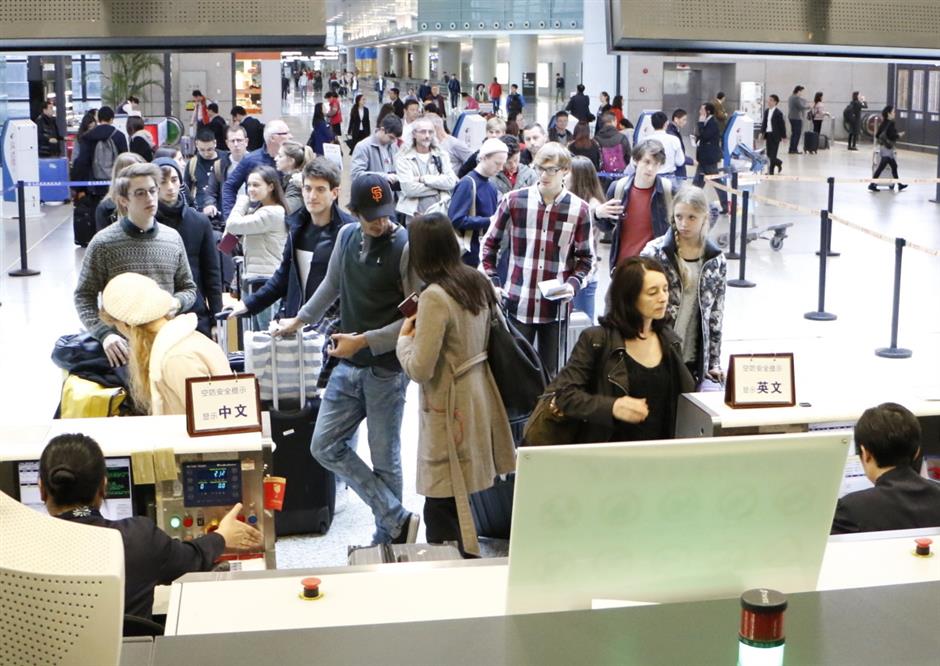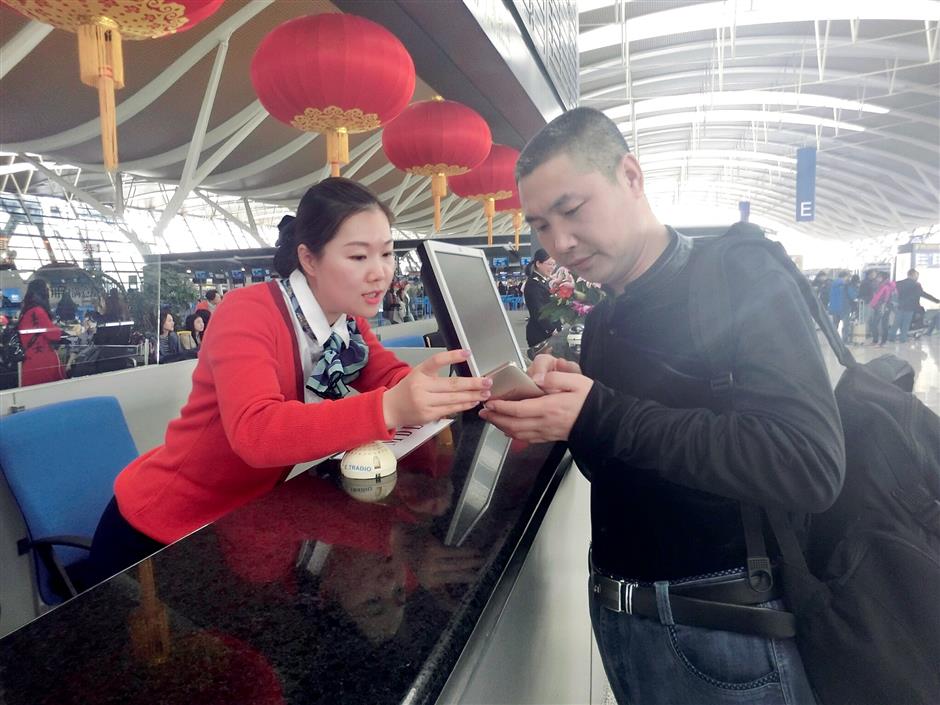City's airports to handle 7 percent more passengers during 'Spring rush'

Passengers wait to check in at the China Eastern Airlines counter at Hongqiao International Airport yesterday, the first day of the annual travel peak period.
Shanghai's two airports are expected to handle 7 percent more passengers than last year during the annual travel peak period, bringing them almost on par with the city's railway, which is usually the main mode of transport during the festival period.
Pudong and Hongqiao airports are expected to handle 12.6 million passengers on both domestic and international flights during the travel peak that began yesterday and will last until March 12, the Shanghai Airport Authority said.
The number was slightly up, or a 7 percent growth on year, as a growing number of people take flights back home for the festival or take off for a weeklong holiday. The city's three major railway stations — Shanghai South, Hongqiao and Shanghai main station — are expected to ferry 13.15 million passengers during the holiday period.
The Spring Festival travel peak, or chunyun in Chinese, is often referred to as the world’s largest migration as the migrant population returns home for the traditional family reunion for the Spring Festival which falls on February 16 this year.
Nationwide, about 2.98 billion trips are expected to be made during the holiday travel rush.
"Though the flight ticket is double the price of a train ticket, it also saves more than half of the travel time," said Dave Yu, a PhD student at Shanghai University. He traveled on Air China to Tianjin yesterday for a two-hour flight while the bullet train usually takes over five hours.
Shi Jiajie, a teacher at a local kindergarten, said a prebooked flight ticket is no more expensive than a train ticket. She spent 500 yuan to travel to Dongying in the eastern Shandong Province on Spring Airlines, a Shanghai-based budget carrier. The flight takes two hours while a train takes over five hours and costs almost the same, Shi said.
Most of the passengers at Pudong airport are headed to southwest and central Chinese cities as well as to Southeast Asia and Japan, according to the airport authority.
Popular flights at the Hongqiao airport include those to Guangzhou and Shenzhen in south China's Guangdong Province, Wuhan in the central province of Hubei, and Chengdu and Kunming, provincial capital cities of Sichuan and Yunnan, respectively, in China's southwest.
"A large number of passengers are expected at the Pudong Airport between February 9 and 13 as well as on February 21 and 22 when travelers and students fly back," an official with the Pudong airport said. It will send and receive a total of 8.2 million passengers during the travel peak. The airport is expected to handle a record 210,000 passengers on February 21 and 22 at the end of the weeklong Spring Festival holiday.

An airport staff at Pudong International Airport guides a passenger to the airline check-in counter.
Passengers are advised to arrive at least two to three hours before their scheduled flight time to give themselves enough time to get through security. They may have to wait for a longer period at the Pudong airport for security checks, an airport official said.
Hongqiao airport will receive most passengers before February 15, which is the Chinese New Year Eve, as well as after February 18. It is expected to handle over 4.4 million passengers during the peak period.
Tickets on Spring Airlines on popular domestic routes are sold out, the carrier said yesterday. Tickets for flights from Shanghai to Harbin in northeast Heilongjiang Province, for instance, are all sold out between February 9 and 14.
The budget carrier said it has canceled on-flight sales during the travel rush period to ensure a quiet environment to those flying back home for the festival.















